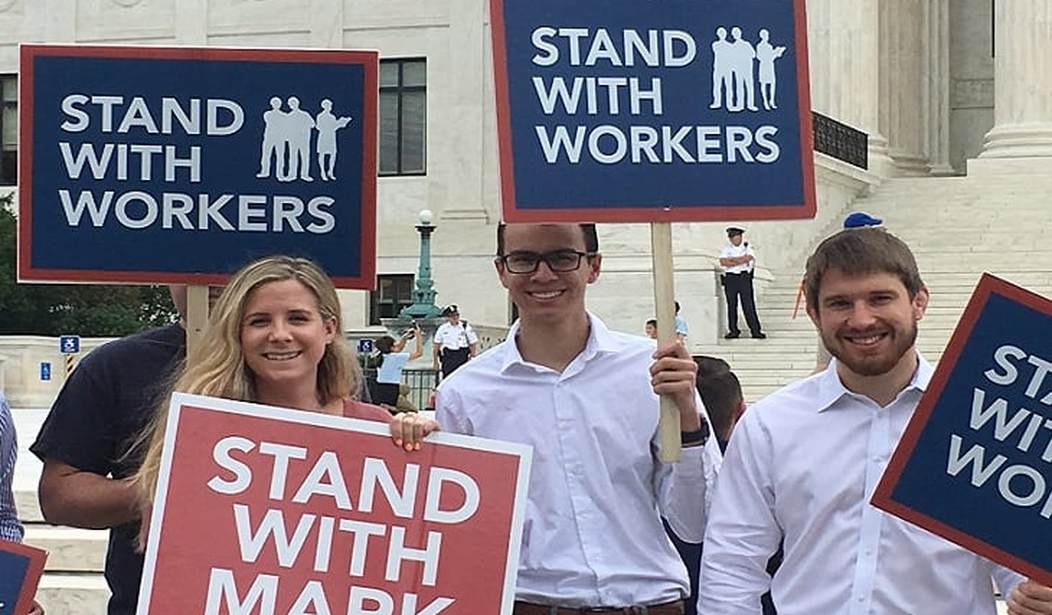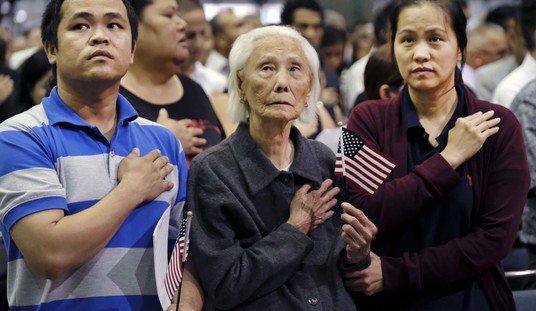The most recent appeal to the U.S. Supreme Court of a case related to its landmark 2018 ruling in Janus v. AFSCME “presents the court with a clean opportunity to end the string of bad law lower courts have created to evade Janus.”
The court’s desperate need to take action was underscored on Oct. 7, when it was announced the justices had declined to consider six similar cases that would have clarified and reinforced the First Amendment rights ostensibly affirmed in Janus of public employees to decline union membership and dues.
On Sept. 16, the Freedom Foundation filed a writ of certiorari with the court in Kirsti Parde v. SEIU, in which the petitioner — a Los Angeles County court reporter — alleges her employer continued to illegally deduct union dues from her paycheck for several months after she notified Service Employees International Union (SEIU) Local 721 of her desire to opt out.
Parde, who began work as a court reporter in Los Angeles Superior Court in 1998, initially joined SEIU 721 when the government could compel employees like her to pay dues and fees anyway. In the wake of the Janus ruling, she requested her release from the union in January 2022.
Union officials accepted Parde’s membership resignation but continued to deduct dues from her paychecks based on a 2020 agreement she allegedly signed electronically.
Parde denied ever signing the document and demanded its authenticity be verified.
Meanwhile, the union continued to instruct her employer to deduct monthly dues from her paycheck until May 2022, when the Freedom Foundation, a national watchdog organization specializing in public-sector union abuses, filed a lawsuit on her behalf, listing SEIU 721, the Superior Court of California, Los Angeles County and California Attorney General Rob Bonta as defendants.
In 2023, the action was dismissed by a District Court judge, prompting an appeal to the 9th Circuit Court of Appeals, which subsequently upheld the dismissal.
In its ruling, the court recognized for the first time in an unauthorized dues deduction case that the complainant had suffered a “cognizable, particularized and concrete First Amendment injury.”
The court also found the injury was “fairly traceable to SEIU … the Superior Court and (Los Angeles) County.”
Nonetheless, it ruled none of the parties could be held accountable.
Parde’s employer was in the clear, said the court, since its collective bargaining agreement plus California law granted SEIU 721 sole discretion over which employees were required to pay union dues.
Likewise, the court dismissed all claims against SEIU, brushing off the union’s misconduct as a “private misuse of a state statute” rather than “conduct that can be attributed to the State.”
The appeal notes, “The practical effect of the 9th Circuit’s six-year evasion of Janus is that SEIU could literally do nothing to violate Parde’s First Amendment rights.”
Parde perfectly illustrates the contempt unions are showing for Janus, and why the justices need to intervene and uphold the integrity of their earlier ruling.
On Labor Day, We Honor Workers, Not the Unions That Victimize Them
Public Employees Leaving Their Unions in Record Numbers
The county is liable, the Freedom Foundation’s appeal explains, because there is ample case law showing a government employer is still accountable to the Constitution even when it contracts out that function to a private entity—especially when the private entity receives a financial windfall by demanding unauthorized wage seizures. Likewise, SEIU can clearly be considered a state actor because California law and the CBA granted it the “exclusive ability to control a government employee’s payroll deduction system.”
As for the 9th Circuit, the Freedom Foundation appeal concludes, “As it has done repeatedly in many cases during the six years since Janus, (it is) creating bad law to declaw Janus’ requirement that a public employee’s authorization of government dues deductions must constitute a waiver that is ‘freely given and shown by clear and compelling evidence.’”
Almost before the ink dried on Janus six years ago, public-sector unions began scheming to blunt its impact. And with a huge assist from lower courts in general and the 9th Circuit in particular, they’ve been far too successful.
Once and for all, it’s time for the U.S. Supreme Court to say that it means what it says and says what it means.
Jeff Rhodes is vice president of news and information for the Freedom Foundation.












Join the conversation as a VIP Member